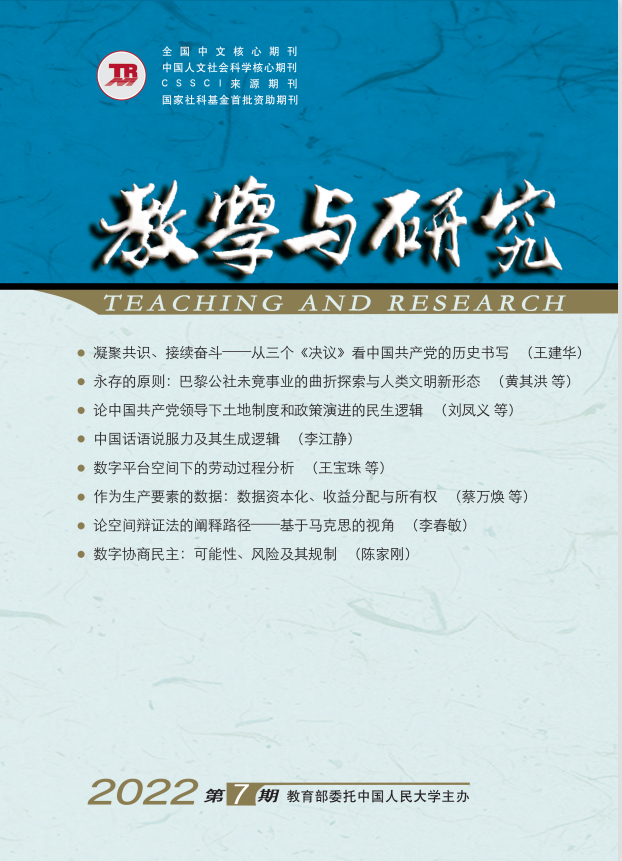The digital economy has penetrated into all aspects of production and life, and the attribute of data as a factor of production has been widely recognized. The process of data items being “used” is the process of the evolution of its valueform, as well as the process of its value proliferation and capitalization. The platform is not only a “factory” for processing data items, but also an important intermediary to realize the movement of their values. The digital platform completes the production and realization of surplus value through the production process and circulation process of data commodities, thus forming a capital accumulation process with data commodities as the core. Data capital owners grab a greater share of the digital dividends brought by data items, while users who provide raw materials, workers who maintain the normal operation of the platform, and smallsized producers who preserve the vitality of the platform are in a dominated status, which destroys the fairness of distribution. The exclusive ownership of data lacks legitimacy, which is not in line with the generative characteristics of data items. Therefore, it is urgent to clarify data ownership to reshape the income distribution pattern. At this stage, we need to grant the platforms the right to use data to promote their development; while at the same time, we need to attach great attention to the redistribution of dividends to the user. In the long run, we can search for a path of data public ownership under the socialist system, and tackle the roots of the problem of unreasonable distribution.



